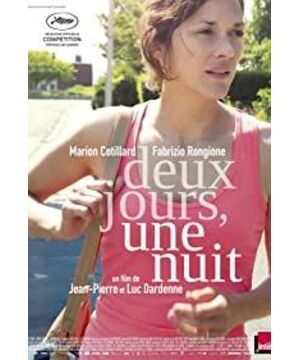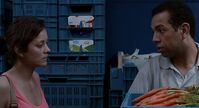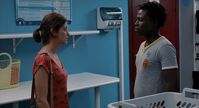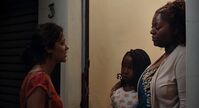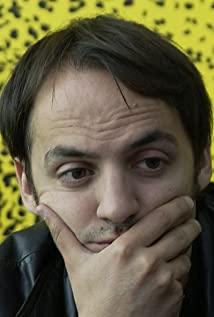According to this Standard, this film is indeed a standard literary and artistic film, and it does not seem to be as blood-sucking as a commercial film, even in a place like Sanlitun, where the streets are full of fashion and trendy. There will also be people walking away from the cinema one after another. I made a random observation, and most of the people around were dressed in bohemian-style clothing, probably long floral dresses, blue cloth shoes, and their faces were arrogant and cold with flaming red lips.
Seriously speaking, this film is actually describing people's choices at the moment of moral paradox, also called delimma. Translating into Chinese is a dilemma. In the case of limited resources, we must allocate resources differently according to the actual situation, and the final result is trade-off, which means that under the condition of this balance, we exchange a part of the cost for another part of the benefit. Usually the price system can quantify such trade-offs, such as the happiness of eating 5000 ice creams is worth the happiness of an iPhone 6, although to a large extent I do not agree with such a measurement method, because preference involves human feelings, and The formation mechanism of people's feelings is very complex, and it is often influenced by the outside world. It is difficult to have a unified standard. It is easy to value items, but it is more difficult to price personality and personality derivatives, because the latter involves people. The projection of emotions, that is to say, it can fundamentally change people's judgment of value. For example, the top ten Retina macbooks are not worth the ice cream eaten with the beloved girl.
In some more extreme cases, when we worked hard in the imperial capital, the magic capital, and the flower capital, all kinds of places were floating around, and we finally saved a little wealth. Parents' bodies are getting old, and a lot of medical expenses are overwhelming, and most of the medical expenses cannot be covered by social insurance. For many terminal illnesses, when we know that the end point ahead is death, will we insist on expending all resources for treatment? This is really a sad question. There is a Japanese movie "Narayama Festival Kao" that describes such a predicament. There is endless pain between choosing and giving up.
When one can sacrifice oneself in terms of personal wealth and maintaining a dignified life for the elders, the choice is even more difficult for members of the same family. In the end is to let the elderly relieve more pain? Or let the child have a more abundant development environment? Let the ancestors go or let the descendants live a better life, this is always an unsolved paradox. There is another story such as, at the fork, you can choose the direction of the train. There are 3 children on one road and 8 children on the other road. How to choose? How do you decide who will live and who will die in times of famine? The value of human beings transcends the value of things, but how can we overstep the authority of God to judge the fate of people between people? The most frustrating thing is that we must make such a choice, otherwise it will cause even greater losses.
As a human being, sometimes it's not an easy problem.
View more about Two Days, One Night reviews


